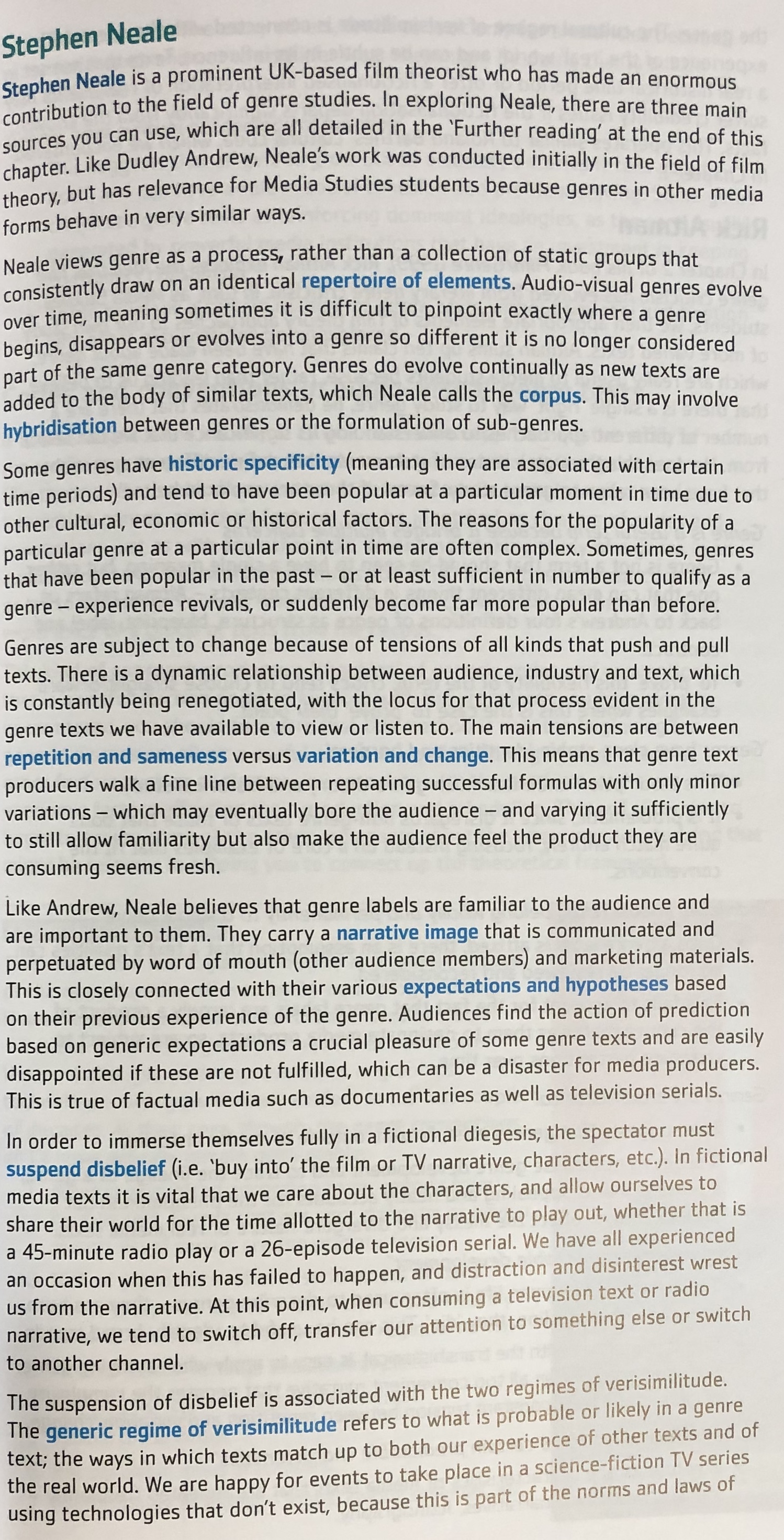Steve Neale- theorist
Genre:
A genre is a category based on similarities in either the emotional response to the film (horror, tragic, comic, etc.) or the narrative elements. Steve Neale believes that films should include features that are similar, so the audience know it is a horror film or romance, but also include features that are different, to keep an audience interested. This is his theory of repetition and difference. Neale states that all genres contain instances of repetition and difference, difference is essential to the to the economy of the genre.
Subgenres:
All genres contain subgenres which further define and categorise the media text. An example of this is a psychological thriller- psychological is a sub genre.
Hybrid genre:
Some media texts are hybrid genres, which means they share the conventions of more than one genre. An example of this is a rom-com (romance/comedy). The Twilight films are a hybrid genre, combining horror, fantasy, teen and romance.
Corpus:
Genres evolve continually. Repertoire of elements that make up a genre


